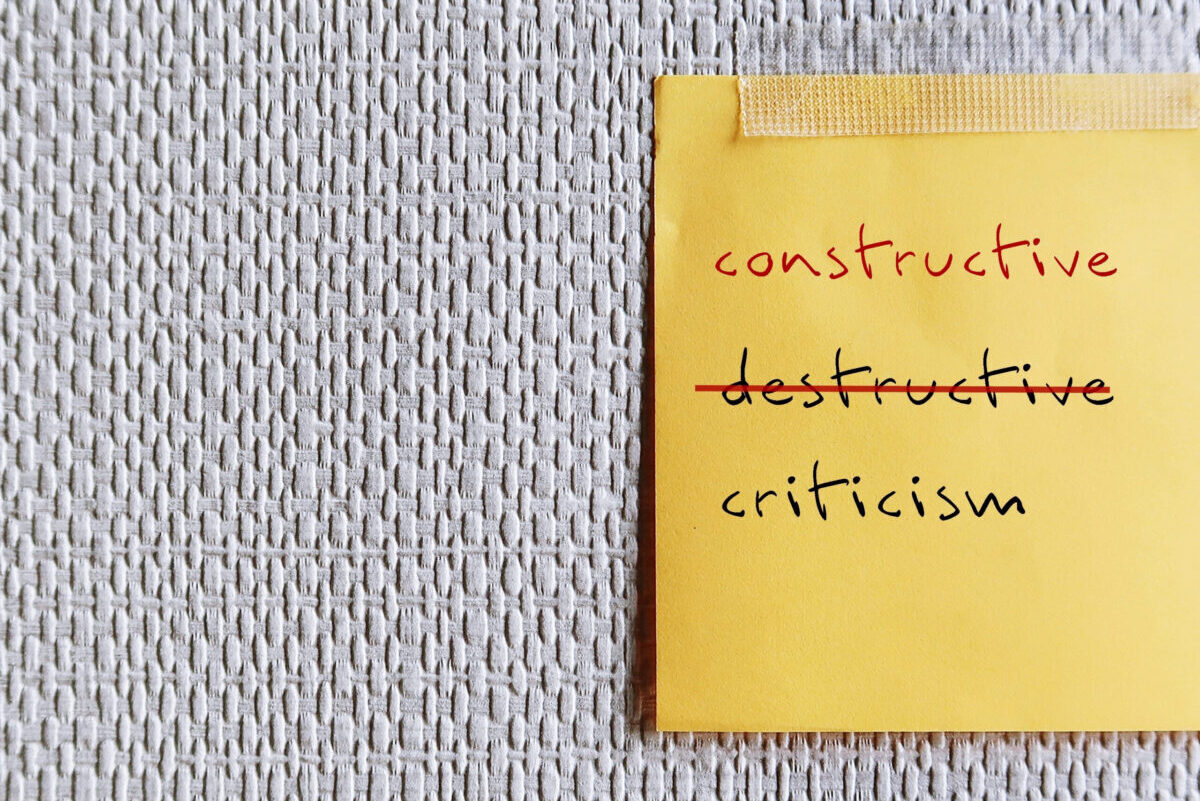No one likes to hear it, but receiving criticism is inevitable at both home and work.
“Many of us find it difficult to handle criticism without feeling defensive or hurt,” says Derek Laymon, an organizational learning consultant for BlueCross BlueShield of Tennessee. “The reason for this is simple: we take the criticism personally.”
But if you take the criticism constructively, rather than personally, it can lead to improved performance and communication—even if it’s unpleasant to hear the criticism itself.
Here are some tips that will help you master the art of taking feedback constructively.
Learn to distinguish between constructive and destructive criticism
Derek Laymon: First, it’s important to figure out if you’re actually receiving constructive criticism. Distinguishing between constructive and destructive criticism can be challenging. Here’s how you can tell the difference:
Constructive criticism:
- Is typically specific, objective and focused on a behavior or action
- Offers suggestions for improvement
- Comes from a place of genuine concern or desire to help
Destructive criticism:
- Is often vague and subjective
- Demeans or belittles the recipient
- Tends to include personal attacks
- Lacks productive purpose
Destructive criticism can often be a reflection of difficulties the critic may be struggling with personally. If you recognize destructive criticism for what it is, it may be easier to not take it personally.
WellTuned: how to stop taking things personally
Process constructive criticism so you can benefit from it
Derek Laymon: If you receive constructive criticism, you need to listen to it, process it, and then use it to improve. Here’s how you can do that:
- Take time to reflect on the feedback.
- Try to analyze the criticism as objectively as possible. Try to separate your identity from the criticism. Consider its validity and the potential it offers you for improvement.
- Ask people you trust for their feedback or advice.
- Set specific and realistic goals for yourself, based on the feedback you receive.
- Break down your goals into actionable steps so you can work toward improvement.
WellTuned guide to active listening
Be mindful of your response to criticism
Derek Laymon: At some point, you’re going to have to respond to the person who criticized you. Try to pause and reflect first, before you respond. It’s normal to feel uncomfortable or vulnerable when someone has criticized you, directly or indirectly.
As you consider your response, try to identify the intention of the information you’ve received. You might be able to use it to improve your performance and become a better version of yourself. This is a potential opportunity for growth.
If you view it as an opportunity for self-improvement, that can help you respond evenly. Learning how to accept constructive criticism will help you become more self-aware and resilient.
“Lastly, but most importantly, be kind to yourself,” Derek says. “Remember that growth and improvement take time, and nobody is perfect. Treat yourself with compassion and patience as you strive to make positive changes.”
Derek Laymon provides 7 tips for disagreeing productively
Get more information about specific health terms, topics and conditions to better manage your health on bcbst.com. BlueCross BlueShield of Tennessee members can access wellness-related discounts on fitness products, gym memberships, healthy eating and more through Blue365®. BCBST members can also find tools and resources to help improve health and well-being by logging into BlueAccess and going to the Managing Your Health tab.


